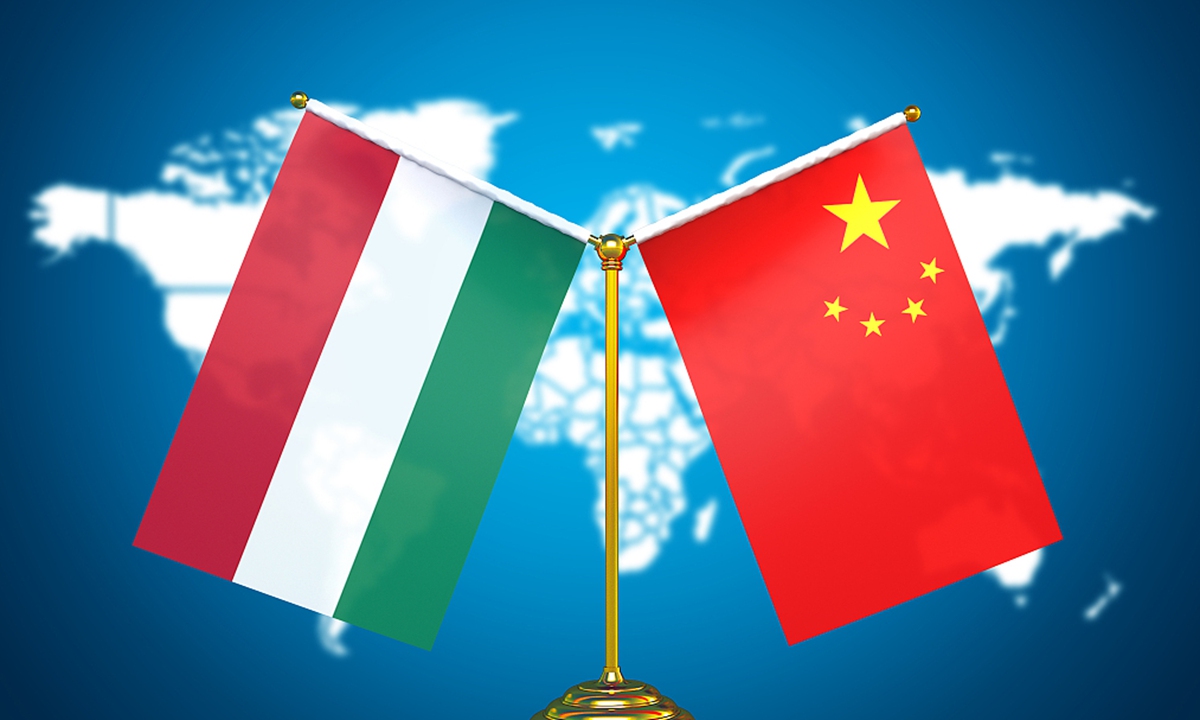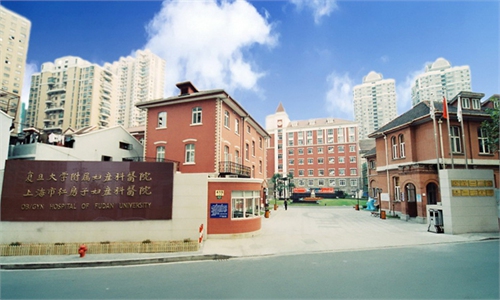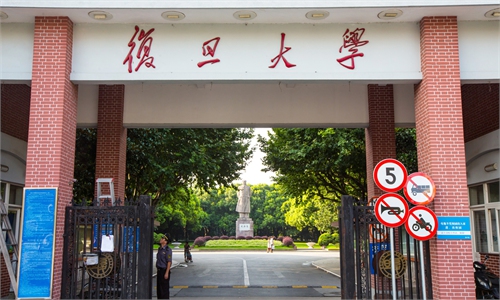China-Hungary ties intact despite Budapest school branch on hold amid opposition's attempt to stigmatize exchanges

China Hungary Photo:VCG
After the march in Budapest against Hungary's plan to build a Chinese university branch - a move incited by the country's opposition party to stigmatize the cultural exchanges for political gain - the Hungarian prime minister appeared to suspend the plan and offered to hold a referendum on the project in 2023, which reflects the hurdles ahead in ties between China and Hungary marred by few opposition politicians' ulterior motives to hijack China-Hungary and China-EU ties.
The reported suspension is perhaps a flexible move by the Viktor Orban government in response to the latest protest over the weekend and won't fundamentally damage China-Hungary friendship despite some Hungarian opposition politicians who incited the protest by hyping so-called "Chinese human rights abuses" to pave the way for competition against the incumbent Hungarian Prime Minister.
The project to set up a branch of China's Fudan University in Budapest was agreed in December 2019, the largest investment in Hungary's education sector in recent decades.
However, under pressure from opponents of the project, Orban appeared to backtrack on the plan and is offering to hold a referendum in 2023 instead, Bloomberg reported on Monday.
The suspension came after thousands rallied in Budapest on Saturday against the plan, after Budapest's Mayor Gergely Karacsony, who is the leader of a small opposition party in Hungary, announced to rename roads around the university branch.
The new street signs will include "Free Hong Kong Road," "Dalai Lama Street," and "Uygur Martyrs' Road," according to a BBC report on Wednesday.
Karacsony launched his bid to become prime minister, so he needs to make waves by attacking the incumbent government's China policy. Misleading voters and creating confrontation over the Fudan University project has become his gimmick, observers pointed out.
Wang Wenbin, spokesperson of the Chinese Foreign Ministry, at a press conference on Monday urged politicians in Hungary to maintain an objective, rational and scientific attitude, avoid politicizing and stigmatizing the normal cultural and people-to-people exchanges between China and Hungary, and safeguard the bilateral friendly cooperation.
Wang stressed that the setting up of overseas schools is of significance to promote people-to-people exchanges among countries and a common practice for countries to strengthen international education cooperation, which is in line with the trend of the times and the interest of all parties.
Cui Hongjian, director of the Department of European Studies at the China Institute of International Studies, told the Global Times on Monday that both the renaming of the roads and the protest on Saturday shows that some Hungarian politicians of opposition party are using the Fudan University project to challenge Hungary's current leader by attacking the incumbent government's friendly China policy.
Karacsony is the top challenger to Orban in the general elections next April, Reuters reported.
Building the branch of Fudan University is a public beneficial project, not an ideological or geopolitical tool. But if faced with a dilemma, suspending the plan would be a flexible and reasonable option for the Orban government, Zhang Hong, an associate research fellow at the Institute of Russian, Eastern European and Central Asian Studies of the Chinese Academy of Social Sciences told the Global Times.
Orban's government maintains relatively sound relations with China, despite China-EU ties have encountered difficulties, so Orban's government is under mounting pressure given the deep-rooted prejudice against China in the public opinion sphere in Europe, Zhang said.
Citing the earlier case this month where Hungary blocked a European Union (EU) statement criticizing China's treatment on Hong Kong issues, observers believe the friendship between China and Hungary will not be easily shaken.
Zhang said in order to avoid causing trouble to our friend, China also needs to be flexible while upholding its core interests.



